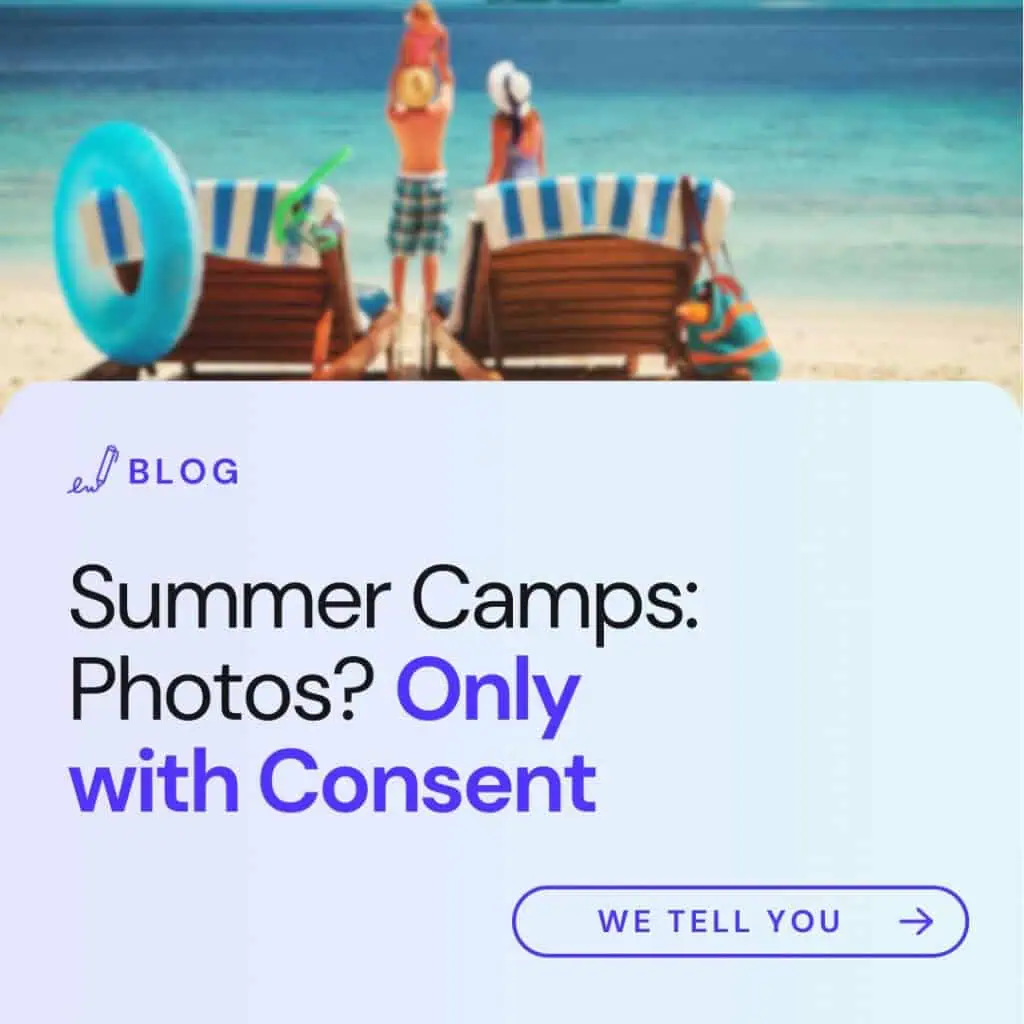

A recent sanctioned case shows why separating consents is key to avoiding fines and protecting children's privacy.
As the school year ends and the holidays begin, many children take part in summer activities: sports camps, sleepaway camps, outdoor trips, or day programs. Just 15 years ago, no one imagined filling hard drives with thousands of childhood photos. But today, it's common to share images almost daily with families to show what kids are doing.
While this habit is usually well-intentioned, it also involves certain legal risks that we’re still not fully aware of.
A recent case highlights this issue: the City Council of Móstoles reported a summer activity academy to the Spanish Data Protection Agency (AEPD).
Why?
Because the registration form required parents to sign a consent clause that did not distinguish between the permission needed to enroll the child in the activity and the permission to take and use their photos for promotional purposes.
This is a direct violation of data protection regulations. The law requires that consent must be collected separately for each specific purpose. The following type of clause is not valid:
“I authorize Vacaciones en el Mar Camp to process my data and that of my son Juan Ramiro, age 10, based on the contractual relationship, to take photographs for the newsletter and publish them on social media.”
Because consent must be granular—separated and specific for each purpose and each legal basis. In this case:
These should be clearly separated.
According to the AEPD, taking and publishing images of minors requires separate consent for each purpose.
At a minimum, the contract should include three separate consent requests:
This guarantees:
Additionally, these consents must appear separately from the general contract acceptance, and must always include:
In the case of the reported academy, the imposed fine was €500, later reduced to €300 after applying legal discounts. A small amount, but a clear reminder that data protection is mandatory, especially when dealing with children.
At Lawwwing, we automatically generate 100% legal consent checkboxes adapted to each specific purpose. With a simple copy and paste, you can add the right clauses to your website or documents.
And if you need a custom clause or you manage activities with minors and want to make sure your consent forms comply with the law, our legal team can help you review and adapt them to avoid penalties.